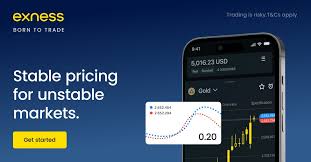
In the dynamic world of online trading, analytics exness Exness stands out as a robust platform that provides traders with a multitude of resources necessary for success. Understanding analytics in the context of trading is crucial for anyone looking to elevate their performance in the financial markets. This article delves into the various facets of analytics related to Exness, exploring its significance, tools, and application in trading strategies.
Understanding Trading Analytics
Analytics in trading refers to the systematic analysis of market data to make informed trading decisions. Traders utilize various analytics to interpret price movements, identify trends, and forecast future market behavior. In the case of Exness, the platform presents unique opportunities for traders to harness analytics to their advantage.
The Importance of Analytics in Trading
Analytics plays a vital role in shaping trading strategies. By analyzing historical data, traders can identify patterns that may indicate potential future price movements. This predictive capability helps in making more strategic entry and exit decisions, thus increasing the likelihood of successful trades.
Types of Analytics Used in Trading
There are several types of analytics that traders can use, including:
- Technical Analysis: Analyzing price charts and indicators to forecast future price movements.
- Fundamental Analysis: Evaluating economic and financial factors that could affect an asset’s value.
- Sentiment Analysis: Gauging market sentiment through news, reports, and trader behavior.
Analytics Tools Available on Exness

Exness provides a variety of tools that facilitate analytics for traders:
1. Advanced Charting Tools
Exness offers advanced charting functionalities which incorporate various technical indicators. Traders can customize their charts to include different time frames, indicators, and analyses, making it easier to spot potential trading opportunities.
2. Economic Calendar
The economic calendar is an essential tool that displays crucial upcoming events and data releases. Traders can use this information to prepare their strategies around significant market-moving events, ensuring they are informed about potential volatility.
3. Market Analysis Reports
Exness provides access to insightful market analysis reports, allowing traders to stay updated on market trends and developments. These reports can be instrumental in shaping trading decisions and anticipating market movements.
4. Webinars and Educational Resources
Exness offers a plethora of educational resources, including webinars and training sessions that cover analytical strategies in-depth. These resources help traders develop their analytic skills and apply them effectively in their trading practices.
Applying Analytics to Trading Strategies
To maximize the benefits of analytics on Exness, traders should consider the following approaches:

1. Develop a Trading Plan
A well-defined trading plan should incorporate analytics at its core. This plan should outline entry and exit points based on analytical insights, ensuring that trades are executed in alignment with the trader’s strategic objectives.
2. Backtesting Strategies
Utilizing historical data to backtest trading strategies is an effective way to validate their success rates. Analytics facilitate this process, allowing traders to refine their strategies before deploying them in live trading scenarios.
3. Continuous Learning and Adaptation
The financial markets are constantly evolving; hence, traders must remain adaptable. Engaging with analytics regularly—through tools, reports, and analyses—allows traders to tweak their strategies in response to changing market conditions.
Common Mistakes in Trading Analytics
While leveraging analytics is crucial, there are common pitfalls traders should avoid:
- Ignoring Fundamentals: Solely relying on technical analysis without considering fundamental factors can lead to misguided trading decisions.
- Over-analyzing Data: Too much information can lead to analysis paralysis, hindering timely decision-making.
- Neglecting Risk Management: Analytics should complement risk management strategies rather than override them.
Conclusion
In conclusion, analytics Exness is a critical component for traders aiming to achieve success in their trading endeavors. By utilizing the available tools, understanding different types of analytics, and applying insights effectively, traders can enhance their decision-making processes and ultimately improve trading outcomes. With Exness providing a robust platform imbued with a wealth of analytical resources, traders have the potential to unlock new levels of performance in the financial markets.
